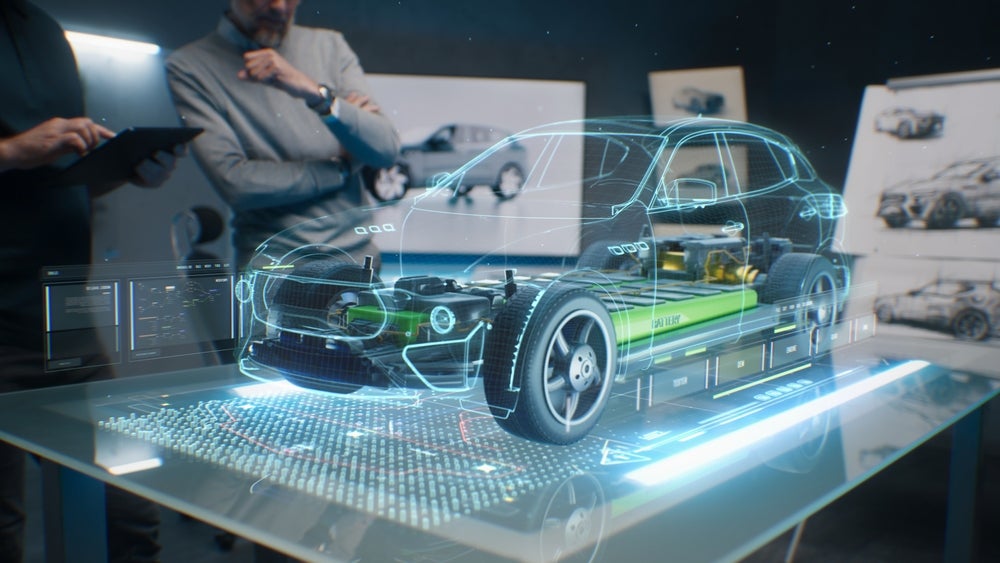
IoT leads as Verdict lists the top five terms tweeted on future cities in January 2021, based on data from GlobalData’s Influencer Platform. The top tweeted terms are the trending industry discussions happening on Twitter by key individuals (influencers) as tracked by the platform.
1. IoT – 607 mentions
The importance of the Internet of Things (IoT), the impact of the technology in agriculture, and how it is helping build smart cities, were popularly discussed in January. According to a video shared by Harold Sinnott, a social media and digital marketing consultant, IoT is being called the next frontier and is expected to transform many aspects of human life.
Right from smart heating systems that can tell whether you are home or not to refrigerators that can notify you if you are running low on milk, the technology is expected to change the world. However, concerns are being raised about the security and personal privacy of data that connected devices will expose.
IoT also trended in terms of the technology’s application in agriculture, according to a Software Technology Parks of India (STPI) video shared by Ronald van Loon, a top technology influencer. According to the autonomous society, the impact of IoT in agriculture is so serious that it can change the entire economy of the country. For example, the Netherlands is now growing vegetables in autonomous greenhouses. The Dutch use connected technology, sensors to monitor CO2 levels, and data analytics to maintain a sustainable environment for plants in the greenhouse.
IoT was also mentioned by Andreas Staub, managing partner at FehrAdvice, a business management consultancy firm, on how the technology is helping build smart cities. Right from real-time crime mapping, to optimising traffic transport, and drones capable of detecting ailments and diseases like Covid-19, IoT is helping empower smart city technologies.
What is the #InternetOfThings? Why is it so important?@wef @Ronald_vanLoon #IoT #IIoT #DigitalTransformation #Automation #SmartCity #Driverless #SmartCars #SmartHome #CyberSecurity #FutureofWork #CES2021 #AI #5G @andi_staub @jblefevre60 @khurramcyber
How well do you really know your competitors?
Access the most comprehensive Company Profiles on the market, powered by GlobalData. Save hours of research. Gain competitive edge.
 Company Profile – free sample
Company Profile – free sampleThank you!
Your download email will arrive shortly
Not ready to buy yet? Download a free sample
We are confident about the unique quality of our Company Profiles. However, we want you to make the most beneficial decision for your business, so we offer a free sample that you can download by submitting the below form
By GlobalData— Harold Sinnott 📲 #FutureofWork (@HaroldSinnott) January 14, 2021
2. Artificial Intelligence – 572 mentions
Artificial intelligence (AI) models that are helping in preserving and sustaining the environment, and the technology being the real driving force behind IoT’s potential and the means to a smarter future, were popularly discussed in January. According to an article shared by Guidaautonoma, a technologist, combining AI with sustainability provides numerous environmental benefits.
For example, the FarmGrow application aims to support cocoa farmers by teaching them ways to optimise their harvests. In addition, food-waste AI app Karma allows restaurants, supermarkets, and groceries, to track wasted food. Food items from this list are then sold to people at discounted rates, the article noted.
AI also trended in discussions on how the technology is helping in realising the full potential of IoT, according to an article shared by Dr Marcell Vollmer, partner and director at Boston Consulting Group (BCG). Although AIoT technology is in its infancy, wearables, smart home devices, smart cities, and smart industry devices, are all expected to drive its impact in the world today, the article detailed.
#AI and Sustainabilityhttps://t.co/ohbhKEAlP0#SelfDrivingCars #IoT #5G #AutonomousVehicles #selfdriving #autonomous #Robotics #driverless #driverlesscars #startups #startup #Robot #MachineLearning #BigData #SmartCity #ArtificialIntelligence #delivery #Robots pic.twitter.com/m7PIpEO65B
— guidaautonoma (@guidaautonoma) January 27, 2021
3. 5G – 373 mentions
5G use cases in transforming cities and economic development, and the importance of 5G and when it will be ready for use, were popularly discussed during the month. According to an article shared by Evan Kirstel, a top B2B influencer, 5G use cases will help unleash the full potential of cities. The technology is required for meeting a multitude of industrial, business, and public use cases today, the article noted.
However, the deployment of the technology requires new infrastructure changes and a decision from the cities as to what 5G use cases are important and should it be provided by the city itself.
The term also trended with respect to the importance of 5G and when it will be ready for use, according to an article shared by Glen Gilmore, a social media influencer. The technology has gained popularity in recent years because of claims that it can reduce latency issues.
Experts believe that 5G will take years to reach 4G coverage as the technology requires high-frequency band. A number of 5G cell towers will need to be installed in order to achieve greater coverage, the article noted.
🌃 Is your city ready to go digital? https://t.co/ScztGCMct2 #5G #smartcities #mobile #iot #iiot @adlittle @chris_rezendes @SphereAnalytics @jeffkagan @FierceWireless @WirelessWeek @Inteliot @EricssonIoT pic.twitter.com/p7guTFujJV
— Evan Kirstel (@EvanKirstel) January 27, 2021
4. Machine Learning – 345 mentions
Machine learning being huge enabler for smart cities, and self-driving cars being a distant dream for countries like India, were popularly discussed in January. According to an article shared by Dr Sally Eaves, a global strategy advisor, technologies such as AI and machine learning will play a key role in building smart cities.
For example, machine learning and statistical data could be used to track employees less than six feet apart, at processing plants or critical infrastructure workplaces. This could in turn help in contact tracing if someone may have been exposed to coronavirus.
The term also trended with respect to the commercialising of self-driving cars in India. According to Guidaautonoma, it is a long way ahead for India to deploy self-driving cars given the multiple challenges such as policy decision, loss of jobs, poor infrastructure, economic feasibility, and readiness.
While companies such as Google, Tesla, Ford, and the likes are leveraging the latest technologies such as machine learning, robotics engineering, and AI to make this a reality, Indian start-ups are also experimenting with the technology.
Mind the Gap! #SmartCities barriers do not involve #SmartTech but people processes #Security & #privacy Insights from #HPE 's Chief #IoT Technologist @TynanWrites @Enterprisenxt #AI #edge #Cloud #future #IIoT #CyberSecurity #ML #DigitalTransformation https://t.co/tJWDpAGR6O
— Dr. Sally Eaves (@sallyeaves) January 13, 2021
5. Autonomous Vehicles – 267 mentions
Innovations, partnerships, and autonomous vehicle (AV) testing were popularly discussed during the month. According to a video shared by Ronald Van Loon, Amazon-owned AV company Zoox has developed an autonomous robotaxi without steering wheel or driving pedals. The AV will navigate based on lidar sensors, cameras, and radars.
The vehicle is also bidirectional, and reduces the need to reverse or change directions. Comprising of two benches seated opposite each other, the vehicle features touch controls to alter music and climate. Amazon may someday use these vehicles to bolster its deliveries, the video highlighted.
The term also trended with respect to the construction of an airport for flying cars in Coventry, England. Glen Glimore shared an article on how the project is aimed at testing air taxis in future urban settings. Urban-Air Port, a UK-based start-up, has entered into a partnership with Hyundai Motor to develop the airport for flying cars, which will be carrying goods and people.
Discussions around AVs also included Guidaautonoma’s tweet on Mobileye unveiling plans to test AVs in four more cities in 2021. The Israel-based Intel subsidiary that makes self-driving cars, is looking to expand its global footprint by testing operations in Shanghai, Tokyo, Detroit, and Paris. The company will also be testing its self-driving technology capabilities in New York City, after getting regulatory approval, the article detailed.
Mobileye co-founder and CEO, Professor Amnon Shashua, revealed new growth strategies in the AVs space, citing the creation of high-definition maps of road infrastructure, a new camera-only mature sensing technology system, and a lidar system-on-chip (SoC) for use in AVs beginning 2025.
Don't worry about hailing this taxi
by @mashable#AI #IoT #Digital #Robotics #AutonomousVehicles #EmergingTech #Technology #Automation #SmartcitiesCc: @rom_duck @danielnewmanuv @dalithsteiger pic.twitter.com/hL87QgFvoE
— Ronald van Loon (@Ronald_vanLoon) January 27, 2021





